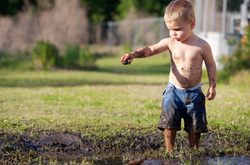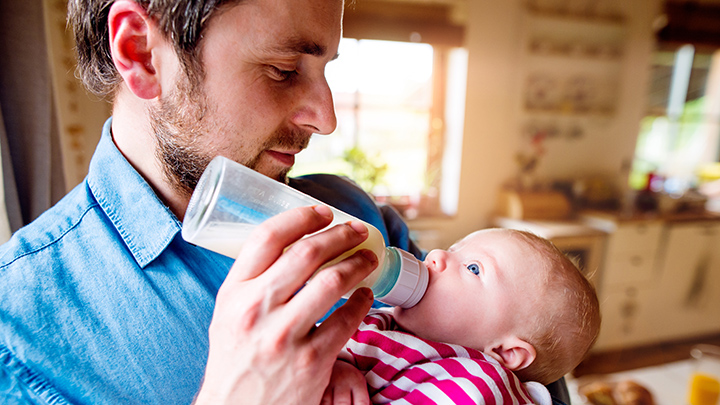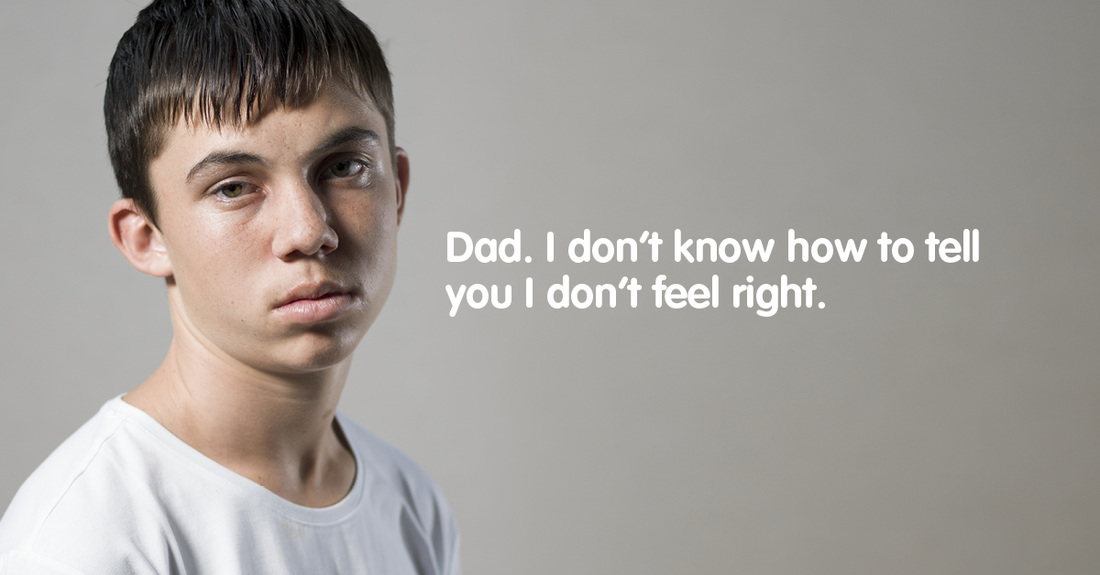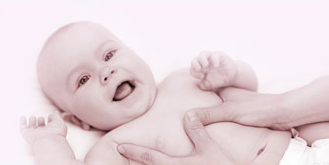Dads overcoming the barriers in the workplace to taking parental leaveCheck out this great article with lots of facts and stories about dads taking prenatal leave - the challenges and benefits.
0 Comments
Article Published in Curtin University E-newsletter | Faculty of Health Sciences | October 2017 21st century fatherhood can be a challenging, rewarding and complicated business. Changing expectations of how fathers participate in family life mean that many dads are more intimately involved with their children than previous generations, and new research is demonstrating just how important the father-child connection is to family functioning and wellbeing.
When boys or young men experience mental health difficulties, the response from Dad is really important. It isn't easy for most of us to know what to do or say in such situations. Headspace has put together some tips on how Dads can connect with sons and help them get the support they might need.
Have you wondered what Infant Massage was all about?
Post Separation Overnight Care of Children 0-3 Years |
|||||||||||
| cooke_critique_of_think_tank_considerations_for_overnight.pdf | |
| File Size: | 273 kb |
| File Type: | |
A free evening event for men expecting their first child
Congratulations!
Meet up at a relaxing venue and a chat about the changes ahead
Meet up at a relaxing venue and a chat about the changes ahead
|
Event arranged by appointment for 3 or more men
 Image: (brendan-c Flickr Creative Commons)
Image: (brendan-c Flickr Creative Commons) The controversy over this issue has a long history(1). The debate has escalated over the past decade with concerns over family law reforms, although there has been scant new evidence to be considered. Recently, media in the UK (Telegraph, Guardian, Daily Mail, Independent) and here in Australia (ABC, The Age, Sydney Morning Herald) have covered this topic. The media attention has been sparked by the controversial opinions of Penelope Leach – countered by Sheila Kitzinger and fathering advocacy groups. Journal publications addressing shared overnight care of young children (2-10) have been referred to in support of the case for and against shared care after separation.
It is generally agreed that the important issue here is what is best for the child – not parent rights (see my posts on the comparable issue of the increasing use of child care). The parenting role does not come with rights - it comes with responsibilities. The demand for parental responsibility is highest at a child’s time of greatest vulnerability - around birth and infancy. It is imperative that at this vulnerable time others uphold the rights of the infant.
It is generally agreed that the important issue here is what is best for the child – not parent rights (see my posts on the comparable issue of the increasing use of child care). The parenting role does not come with rights - it comes with responsibilities. The demand for parental responsibility is highest at a child’s time of greatest vulnerability - around birth and infancy. It is imperative that at this vulnerable time others uphold the rights of the infant.
A leader is one who knows the way, goes the way, and shows the way.
John C. Maxwell

Whether we like it or not, when we became parents, we became leaders. Children cant help but take their lead from the older people around them. Neuroscientists have proven this at a cellular level detecting microscopic mirror neurons in a child's brain that soak up the messages we give them and use it to build their nerve pathways for the future. And society demonstrates it at a macro level; we cannot help but be affected by the culture in which we live. For parents this can be a sobering thought!
As parent we cannot not influence. Frustrating sometimes isn't it! The good news is that when we make mistakes, we can show our disappointment and demonstrate that we are sorry for our actions. Being sorry for mistakes is an essential lifeskill our children need to see modelled. And the sunny-side of parenting is that forgiveness and acceptance is something you can practice too. Children do it well!
As parents we are not only leaders; we are learners too. And some of the best life lessons are taught to us by our own children.
Here is an ancient text (source unknown) that has helped me to become a better parent.
As parent we cannot not influence. Frustrating sometimes isn't it! The good news is that when we make mistakes, we can show our disappointment and demonstrate that we are sorry for our actions. Being sorry for mistakes is an essential lifeskill our children need to see modelled. And the sunny-side of parenting is that forgiveness and acceptance is something you can practice too. Children do it well!
As parents we are not only leaders; we are learners too. And some of the best life lessons are taught to us by our own children.
Here is an ancient text (source unknown) that has helped me to become a better parent.
Watch you thoughts, they become your words
Watch your words, they become your actions
Watch your actions they become your habits
Watch your habits, they become your character
Watch your character, it becomes your destiny

Theres a stack of books and programs on managing children's behaviour. They may all be good, each in their own way, but which technique to use? Count to 3, time-out, rewards? Arrgh! Its easy to feel overwhelmed.
Here is one big fat juicy strategy that cuts to the chase. Its my all-time favourite.
1. Model what you want to see.
Managing strong emotions, empathy, sharing, gentle touch, manners, humour, playfulness, and perseverance – these are some of the life skills we want to see our kids develop. They don’t happen in a vacuum. All children need to see these life skills modelled – they can’t grow something they haven’t seen, and wont see the value of the skill if they don’t experience the benefits. To make it an everyday behaviour, it needs to be everyday for the parents too. Social skills are learnt through the day-to-day experiences of family members rubbing up against one another in the home.
Naturally a high-energy kid might find it hard to use their voice or hands gently; or a child with vivid imagination may lose themself in play and forget to take turns with a toy. Each child is born with a unique temperament and talents that make some skills more challenging to develop than others – that’s diversity. It makes sense that each child will naturally express their skills with varying success, but all children need an example to follow.
“Setting an example is not the main means of influencing others,
it is the only means.” ~ Albert Einstein
For other tips on behaviour, download a free eBook titled
Behaviour 10 Top Tips
Here is one big fat juicy strategy that cuts to the chase. Its my all-time favourite.
1. Model what you want to see.
Managing strong emotions, empathy, sharing, gentle touch, manners, humour, playfulness, and perseverance – these are some of the life skills we want to see our kids develop. They don’t happen in a vacuum. All children need to see these life skills modelled – they can’t grow something they haven’t seen, and wont see the value of the skill if they don’t experience the benefits. To make it an everyday behaviour, it needs to be everyday for the parents too. Social skills are learnt through the day-to-day experiences of family members rubbing up against one another in the home.
Naturally a high-energy kid might find it hard to use their voice or hands gently; or a child with vivid imagination may lose themself in play and forget to take turns with a toy. Each child is born with a unique temperament and talents that make some skills more challenging to develop than others – that’s diversity. It makes sense that each child will naturally express their skills with varying success, but all children need an example to follow.
“Setting an example is not the main means of influencing others,
it is the only means.” ~ Albert Einstein
For other tips on behaviour, download a free eBook titled
Behaviour 10 Top Tips
Archives
May 2019
October 2017
July 2017
June 2017
July 2016
May 2016
November 2015
September 2015
August 2015
June 2015
May 2015
March 2015
February 2015
August 2014
July 2014
June 2014
April 2014
March 2014
January 2014
December 2013
November 2013
October 2013
September 2013
August 2013
July 2013
June 2013
March 2013
January 2013
Categories
All
Child Behaviour
Child Development
Dads
Early Parenting
Events
Expecting Masterclass
In The News
Newsletters
Parenting
Preparing For Parenting
Research






 RSS Feed
RSS Feed